by Kathy Perow
Note from Molly: I include my email in the back of all my books with an invitation for readers to give me feedback, and that’s how I met Kathy Perow. She sent a lovely message after completing my Gen Delacourt Mystery Series. And yes, she told me a couple of things she didn’t enjoy about my books, along with what she did appreciate. We’ve emailed back and forth for weeks now, and I asked her to share how an avid reader gets hooked. Here goes!
 Molly has asked me to write a post from a reader’s point of view, with an eye to self-published authors in particular. I’ve become a huge fan of authors brave enough and confident enough to strike out on their own, without the advantages (or the frustrations) of traditional publishing. I’ll try to answer a few of her questions:
Molly has asked me to write a post from a reader’s point of view, with an eye to self-published authors in particular. I’ve become a huge fan of authors brave enough and confident enough to strike out on their own, without the advantages (or the frustrations) of traditional publishing. I’ll try to answer a few of her questions:
- What makes me decide to download a book: Cover? BookBub blurb? Reviews?
- What makes me pass on completing a book? Typos, slow beginnings, characters who do not resonate?
- What will I disregard if other elements are in place to keep me reading?
Tools and filters
I read a lot. Really a lot: I start 30-40 books a month, but probably finish only 25-30. When I lived in a large house I collected books the way a miser collects gold, and couldn’t imagine a room without them.
Things have changed. I now live in a small apartment and my hoarding is limited to my Nook, my Kindle and my tablet. Those are my reading tools, and I can’t imagine how I ever got along without them. When I read a real cover-and-paper book now I keep trying to swipe the page to go to the next. I was a hold-out though, convinced I would never be able to read without a physical book. Wrong! I got my first e-reader in 2011 and haven’t looked back.
I took out a subscription to Kindle Unlimited in July, 2014, pretty much when it started up. BookBub has been my favorite filter for just about as long. I know for a lot of new users, including me, the sheer volume of books available on KU can be daunting without a starting point, and BookBub provides that.
Choosing a book
Blurb: I get BookBub’s daily email notice in several categories: Biographies and Memoirs, Cozy Mysteries, History, Mysteries, Non-Fiction and Thrillers. I always go through their recommendations carefully. If a book cover and category appeal to me I’ll read the description, but as soon as I see the words “zany,” “hilarious romp,” or “suspicious ex-boyfriend,” in the blurb, I move on.
Covers do count. I prefer they have some relationship to the content of the book and not be second rate mock-ups of 1950’s illustrations. If the blurb passes muster I go on in and check Amazon.
I love the “Look Inside.” Nothing, but nothing, is more important than the ability to read a few pages before committing to a book, Kindle Unlimited or paid.
Reviews sometimes have value, sometimes not. The reviews that say “I liked the book a lot” and nothing more are useless. I’d rather not see plot summaries included in a review; that’s why I’m going to read the book, to see what happens. A review that comments on the best parts of an author’s style are the ones I pay attention to.
The recommendations in the “Customers Who Bought…” section on the Amazon page are often (usually?) valuable. Like minds. It’s also the easiest way to find more of an author’s work. If I’ve found an author I enjoy I have no problem paying for the additional titles. They don’t have to be free or KU! Good books are such treasures, and I’ll follow any writer who creates them. Likewise, as I have a fondness for series books, if I stumble into a 3rd or 4th title I like I’ll go back and get the first in the series before I start.
What Works? Doesn’t Work?
Pace. I’ll usually go ahead and download a KU book if it looks like it has potential, and always feel I’m cheating if I don’t finish a book once I’ve started it. But I’ve learned. I don’t mind a slow start to a book unless it puts me to sleep, but if the pace of a book leaves my mind wandering I’ll skip it.
Plot. Mystery is one of my favorite categories. An author who takes the first fifty pages to set the physical scene in her own voice, not the character’s (purple prose sunsets) has probably lost me. Plotting and pace are interwoven: one too many “what do we know” recaps will put me off. An author should set out the plot clearly enough the first time around that her protagonist shouldn’t be reminding the reader every twenty pages.
Formatting is another critical factor for a digital book. If the typography makes my eyes twitch I won’t read it. For example: Too deep an indent on paragraphs, and widow and orphan lines drive me crazy. Out of order pages are a sure killer. I don’t think I’m alone as a reader who came from physical books and wants the familiarity of a comfortable page.
Typos. Sometimes I wonder if anyone has even looked at the pages before putting them up to publish. Words that are completely misused and look like OCR (Optical Character Recognition software) mistakes, such as “nan” for “man” consistently throughout a book, irritate me. Edit, edit! Please edit if you want me to read your book! Usage errors are common, as “accept” for “except,” and I can live with them if they don’t litter a book’s landscape.
Characters and Dialogue
Characters who are themselves, warts and all, are critical for a book I’ll finish. There are so many wannabe Kinsey Milhones out there, or books with mystified young heroines who have often lost both parents in an auto accident, trying to make sense of their pasts. I’m tired of the cookie cutter characters and won’t read them. Supporting characters add so much depth to a book. Please note: characters, not caricatures. There is a well known series that features a dwarf as a sidekick who doesn’t even warrant a last name til the 4th or 5th book. What does that tell you?
Mannerisms are a personal peeve. At times, I’ve read the first two books in a series before giving up on the rest; the only way characters expressed any emotion at all was by pounding. Pounding a table, slamming a wall, mashing one fist into another. I started to count the instances in the second book and gave up. I mentioned the author’s aggravating habit in a review and she responded, saying “Oops!” But I still didn’t read any more of her books.
Dialogue is a make or break for most fiction. If it’s wooden or self-conscious it interferes with the enjoyment. We all know that written dialogue and spoken dialogue are very different. In order to feel real the words used on the page have to sound real, even if they aren’t what people would be likely to say in person.
Flawed but Readable
Can a book have any or most of these flaws and still be worth reading? Sure. One of the joys of discovering a new author’s first book is watching her grow as a writer in subsequent work. Overdone dialogue? I’ll keep going if the people uttering it are compelling. Horrible typography? Awfully hard to get through, but I’ll give it a go if the plot of the book has me eager to see what happens next. Purple prose? Naah, I think I’ll pass.
Keep writing! Keep reading!
In conclusion, one of the best way to improve your writing is to read, and read more. It helps build a critical eye, an eye you can then apply to your own work. Becoming a discriminating reader helps create a better writer. Like any craft, good writing gets better with practice. Keep ’em coming – you have readers out here who can’t wait to see your next book!
Authors and readers, how do YOU find books? What are your pet peeves about craft? Leave a comment and share!
All original content by Molly Greene and guests is copyright protected – did you enjoy the article? You can show your support by checking out Molly’s Amazon Author Page – and hey, buy a book while you’re there! Or, subscribe to this blog and you’ll never miss the weekly posts. Your email will NOT be sold, shared, abused, or rented – that’s a promise. If you’re not already, follow @mollygreene on Twitter. Mwah! Thank you so much.


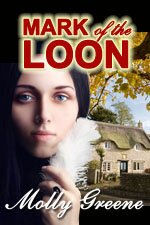
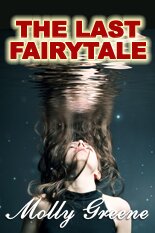
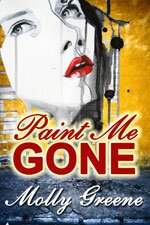
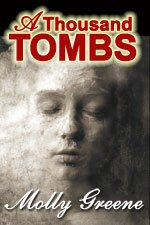
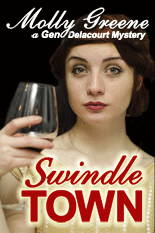
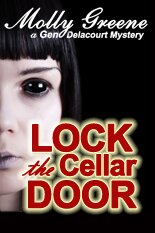
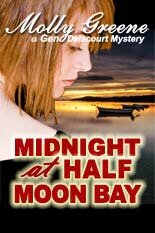
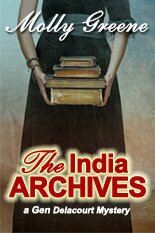
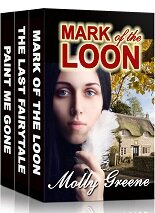

Nice one, Molly, and thanks Kathy for your insights. 🙂
Thanks Belinda, and yes, huge thanks to Kathy!
Kathy is a lot more kind than I am. I think I’ve turned into a book snob. If any of these issues were littered throughout the novel, I’d be done. Hence, why I didn’t dare self-publish. Now that I have that critical eye (aka editors), I admire you even more. This was an excellent idea for a post. Well done, Kathy!
Thanks, Sue! I agree, the more we “know,” the more it ruins us for reading. And I hope to have Kathy back to talk about more reader insights and issues.
I pick my books by voice – as it comes at me in the first few paragraphs. I used to pick them by interest quotient but over the last few years I discovered that great beginnings very often do not make for an even good book. And if there’s one thing I hate is to be disappointed as I move into the book. So while I appreciate starts that are bit on the sensationalist’ic side, the rest of the book seldom lives up to the set-up expectations.
I go for the voice. Nice and easy, naturally flowing. An occasional nice turn of the phrase is okay but not necessary. I cringe when I come across grammatical glitches – and after a dozen or so the book is ‘done’ for me. I won’t continue. Bad grammar and general errors, whether typos or results of spellcheck and predictive text, just turn me right off as a reader. Head hopping is annoying too, even when it’s well done. I’ll read on even if I don’t like the characters just that they won’t stick with me. And that’s about it. Oh, covers – I dislike plain or boring covers but if they’re well done, I’ll tolerate them.
I also go for voice, Edita, and good writing. I’ll put up with a so-so story if the craft is there. Thanks so much for sharing!
I like that: “nice and easy, naturally flowing.” What a perfect description. I’m with you too on the errors. I turned my own kids into self-professed grammar Nazis, but I do have a slight tolerance if I can put it down as simple error.
Great post. This question is for Kathy, if she’s reading this. Do you not even look at the book description on Amazon?
Molly, see, Kathy and I had the same reaction to reading ebooks…
GREAT question, DJ, I think she’ll hop on soon and let us know. THANKS!
I do read the Amazon blurbs, but I don’t take them very seriously. I’ve found they are often either puff pieces or too heavy on plot summaries for my taste. I put more weight on the readers’ reviews and the ability to read those first few pages. Thanks for asking, DJ – I had to really stop and think about WHY I dismiss them so readily!
Thanks for the response, Kathy. I always read those blurbs and, of course, take them with a handful of coarse Kosher salt. From there my next stop is the 1-star reviews, 2-star reviews, 3-star reviews, and maybe a couple of 5-star reviews, in that order. If the book is free or 99 cents and something piques my interest about, I’ll skip a sample and go directly to the book. I’m still writing my first book, so I find the complaints I read in the 1- and 2-star reviews to be something of an education, and I’m still at the stage where I learn loads from reading bad books.
Re: learning from bad books. This is one of the “joys” of being in a crit group. Even when I’m blind to my own writing flaws, when I see a fellow writer commit certain gaffes, it forces me to examine my stuff all over again. Reading great books by great authors doesn’t do that. But it does give me something in the far distance to aim for!
Thanks, David! You’re right, of course, but I disagree just a tiny bit about great books – my favorite authors show me time and time again how to do it “right.”
David, yes, that’s exactly the experience. Great books show me the right end result, but I can’t always put my finger on why it was great. It just gives me something to strive for. But the bad books are a virtual road map of what not to do.
I’ll borrow your “coarse Kosher salt,” DJ. You do have a way with words! As a reader, I groan when I see those same gaffes.
Thank you Kathy and Molly for sharing. Very insightful for me as I do want people to read my book when it’s finished …..Many thanks 🙂
Thanks, Carol, and congrats on your upcoming release!
This is great info. Thank you!
Thank you both, Carol and Diana. I’m glad to know the post had some value to you. As a matter of fact, thank you everyone who read and replied! You’ve all made me think, one of my favorite things to do. 🙂
What a great and informative post for new(and old) writers. I think more new writer’s should read a few established works before publishing. That way they could eliminate 90 percent of the descriptive adverbs.
Great post and lots of helpful insights. Thanks, Kathy and Molly.
This is a great article and I agree with the author’s observations. I would like to add something that bothers me in some of the books I read. There are an astonishing number of books where the author doesn’t have a clue regarding the situation they have carelessly created. Research carefully, and if possible, talk to people who have been in the same type of situation. There are too many readers who ‘know’ about solving a crime, climbing a mountain, running a business — and you don’t want them to laugh at the wrong time, and you certainly don’t want to get an email where you can hear them chuckling. Research, research, research. You can never do enough.
I couldn’t agree more, Joe. I would add geographical accuracy as well.
Molly and Kathy, great post!! Thank you!
Great post Molly – thanks. It is so important to find out more about the reader’s perspective. I think we can all forgive the odd flaw, but certainly a string of them can make a book unreadable. You make some great points. Cheers.
Kathy–
If all readers brought what you bring to your reading, only bad writers could find fault. I know this from the criteria that matter to you, but even more revealing is your own writing: it’s clear, confident, and authentic. I bet you’d like what I write, and I invite you to “look inside.” Like you, I rely most heavily on that feature at Amazon to help me decide whether to commit the most valuable thing I have–my time–to a book. Thanks for an excellent post.
Barry, this has to be the nicest commentary I’ve ever received I on something I’ve written. Thank you. I’m going to go look at your work now! You’re right: time is the most important thing we commit as readers.
First off, yes – I am Kathy’s son…
Yes, I am VERY keen to noticing mistakes in writing.
When she showed me this article,I kept nodding, pointing and shouting “YES!”. It is very refreshing to see an author come to her readers for perspective and I just had to add my two cents.
My main peeve: assumption. When an author assumes the readers know details of a certain event, fictitious or otherwise, my hair stands on end. Even if it is in the form of a hint to be explained later, it leaves me feeling either left out or as though I missed something; which activates my readers pride. I’ll go back and try to find what I missed or feel confused, thus removing me from the story…. either case, I lose the narrative line.
Hi Andy, so nice to *meet* you! And yes, you’re absolutely right, errors do take the reader out of the story, and sometimes series writers forget that readers may have jumped into their books somewhere in the middle of the series and don’t know all the characters and details. All good points – thanks so much for taking the time to comment!